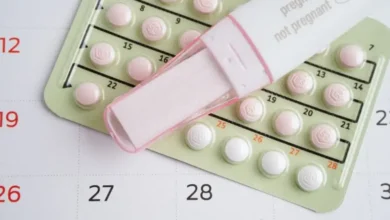8 Tips to lower cholesterol

Lowering cholesterol is essential for maintaining heart health and reducing the risk of cardiovascular diseases. Here are some effective tips to help lower cholesterol:
1. Adopt a Heart-Healthy Diet
- Eat More Fruits and Vegetables: These are rich in fiber, antioxidants, and other nutrients that can help lower cholesterol levels.
- Choose Whole Grains: Opt for whole grain bread, pasta, and cereals. Whole grains are high in soluble fiber, which can help reduce the absorption of cholesterol in your bloodstream.
- Include Healthy Fats: Focus on consuming unsaturated fats found in olive oil, avocados, nuts, and fatty fish like salmon and mackerel.
- Limit Saturated and Trans Fats: Reduce intake of red meat, full-fat dairy products, and processed foods. These can increase LDL (bad) cholesterol levels.
- Increase Omega-3 Fatty Acids: Found in fish, flaxseeds, and walnuts, omega-3s can help lower triglycerides and improve overall heart health.
2. Maintain a Healthy Weight
- Monitor Caloric Intake: Pay attention to portion sizes and avoid high-calorie foods that contribute to weight gain.
- Exercise Regularly: Engage in at least 150 minutes of moderate aerobic activity or 75 minutes of vigorous activity each week, along with muscle-strengthening exercises.
3. Increase Physical Activity
- Regular Exercise: Activities such as walking, jogging, swimming, or cycling can help raise HDL (good) cholesterol and lower LDL cholesterol and triglycerides.
- Stay Active Throughout the Day: Incorporate more movement into your daily routine, like taking the stairs instead of the elevator or walking during breaks.
4. Avoid Tobacco Smoke
- Quit Smoking: Smoking lowers HDL cholesterol and increases the risk of heart disease. Quitting smoking can improve your HDL cholesterol level and benefit your heart.
5. Limit Alcohol Consumption
- Moderate Drinking: Excessive alcohol intake can lead to high cholesterol and high blood pressure. If you drink, do so in moderation — up to one drink a day for women and two for men.
6. Manage Stress
- Relaxation Techniques: Practices such as yoga, meditation, and deep-breathing exercises can help reduce stress, which may positively impact cholesterol levels.
7. Consider Medications
- Consult a Doctor: If lifestyle changes are not enough to lower your cholesterol, your doctor may prescribe medications to help manage your levels.
8. Regular Health Check-Ups
- Monitor Cholesterol Levels: Regular blood tests can help keep track of your cholesterol levels and allow for timely adjustments to your lifestyle or medications.
By integrating these tips into your daily routine, you can effectively manage your cholesterol levels and enhance your overall cardiovascular health.










